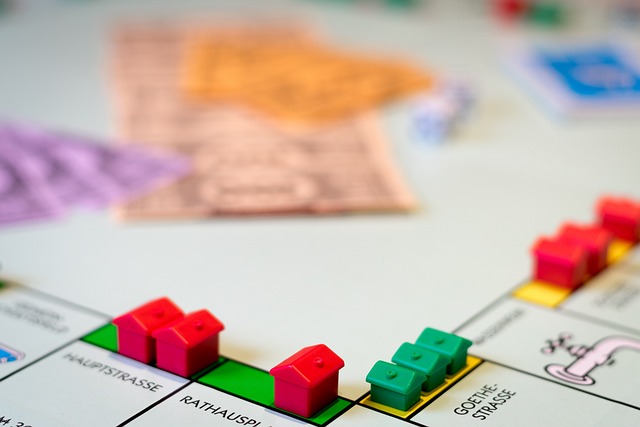In early sobriety, prioritizing sleep through yoga, meditation, and mindfulness techniques is key for success. Insomnia, often triggered by peer pressure, can be tackled with online support groups and holistic wellness programs combining these practices with nutrition guidance. Maintaining healthy sleep habits enhances well-being, builds resilience against peer influence, and aids in managing addiction recovery and co-occurring disorders. These strategies offer effective ways to overcome peer pressure while in recovery.
Healthy sleep habits are essential for navigating early sobriety, addressing insomnia, fatigue, and promoting overall well-being. This comprehensive guide delves into the intricate relationship between rest and recovery, uncovering how sound sleep is a cornerstone of successful long-term abstinence. We explore common insomnia triggers, particularly peer pressure, and its profound impact on vulnerable individuals in recovery. Additionally, we provide practical coaching strategies and tips to foster healthy slumber, empowering those in recovery to overcome fatigue and reinforce their journey towards vitality.
- Understanding Sleep's Role in Early Sobriety: Unraveling the Connection Between Rest and Recovery
- Identifying Insomnia Triggers: Navigating Peer Pressure and Its Impact on Sleep
- Coaching Strategies for Healthy Slumber: Practical Tips to Overcome Fatigue and Reinforce Well-being
Understanding Sleep's Role in Early Sobriety: Unraveling the Connection Between Rest and Recovery

In the intricate journey of early sobriety, understanding the profound role of sleep is a game-changer. Rest isn’t merely a luxury; it’s a cornerstone of successful addiction recovery. Insomnia and fatigue, common challenges during this phase, can impede progress and trigger cravings. Addressing these issues through targeted interventions like yoga and meditation classes for stress reduction offers valuable tools to overcome peer pressure and maintain focus on personal goals.
The connection between sleep and recovery is complex. Quality rest allows the mind and body to heal, repair, and rejuvenate, fostering resilience against stressors that might otherwise trigger a relapse. By prioritizing sleep habits and incorporating practices like mindfulness or relaxation techniques, individuals in recovery can create a healthy routine that strengthens their overall well-being and empowers them to navigate challenging situations, including peer pressure, with newfound clarity and composure.
Identifying Insomnia Triggers: Navigating Peer Pressure and Its Impact on Sleep

Insomnia often creeps into early sobriety as a result of underlying stressors, including peer pressure. In a culture that glorifies excess and instant gratification, maintaining healthy sleep habits can be particularly challenging for those in recovery. Peer groups may encourage late-night gatherings or excessive alcohol consumption, both of which can disrupt sleep patterns. To overcome these triggers, it’s crucial to cultivate a strong support system beyond immediate peers. Online Support Groups for Loved Ones of Addicts offer a safe space to connect with understanding individuals who share similar experiences and can provide encouragement without compromising recovery goals.
Holistic Wellness Programs Integrating Yoga, Meditation, and Nutrition for Deep Healing focus on addressing the root causes of insomnia by promoting relaxation techniques and healthier lifestyles. By prioritizing these holistic aspects, participants learn ways to manage stress effectively, ensuring they get the rest their bodies need. Such programs not only teach valuable coping mechanisms but also foster a sense of community and accountability, which are essential in maintaining long-term recovery and overall well-being.
Coaching Strategies for Healthy Slumber: Practical Tips to Overcome Fatigue and Reinforce Well-being

In the journey towards maintaining Addiction Recovery, establishing healthy sleep habits is paramount. Coaching strategies for optimal slumber focus on practical tips to overcome fatigue and reinforce overall well-being. A key method involves setting a consistent sleep schedule, ensuring individuals go to bed and wake up at the same time each day, even during weekends. This routine helps regulate the body’s internal clock, promoting better sleep quality.
Additionally, incorporating activities like Yoga and Meditation Classes for Stress Reduction can significantly enhance sleep. These practices calm the mind and reduce stress levels, making it easier to fall asleep and enjoy deeper rest. For those grappling with peer pressure or co-occurring disorder symptoms, these techniques offer powerful tools. By prioritizing self-care through regular sleep routines and stress reduction methods, individuals in recovery can strengthen their resilience against temptations and better manage any Co-occurring Disorder Treatment Options they may require.
In early sobriety, prioritizing healthy sleep habits is a game-changer. By understanding the crucial link between rest and recovery, individuals can effectively address insomnia triggers, such as peer pressure, and cultivate overall well-being. Through practical coaching strategies, those navigating recovery can implement sustainable solutions to overcome fatigue and enhance their journey towards a fulfilling life free from addiction. Adopting these methods ensures that getting enough quality sleep becomes a powerful tool in maintaining sobriety and embracing a brighter future.






